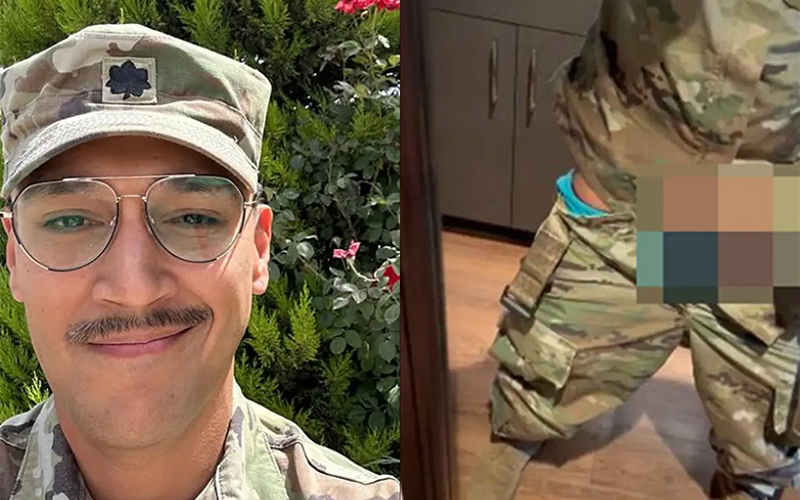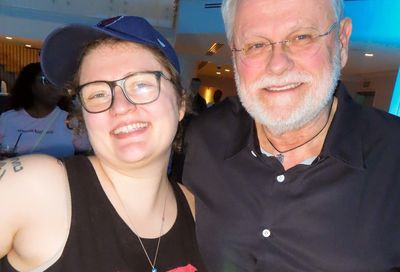Call to Arms
Aubrey Sarvis comes to SLDN with a mission to get DADT repealed
It was a different Army when Aubrey Sarvis served for just over three years in the mid-Sixties, a portion of that time in Vietnam. And yet, in many ways, it’s not so very different. For instance, there is still discrimination against lesbians and gays who serve, says Sarvis, pointing to the so-called ”Don’t Ask, Don’t Tell” (DADT) policy that prohibits gay soldiers from discussing their sexual orientation.
”This is something that has been going on for a long time,” Sarvis says. ”Even [when I was serving], I could see that gays and lesbians were being discriminated against, and being booted out of service because of their sexual orientation or sexual activity. It’s time for it to end.”
Sarvis, a 63-year-old former congressional staff leader who has been working as a lawyer for the Sarvis Group, a public-policy consulting firm he established in D.C., was recently appointed as the executive director of the Servicemembers Legal Defense Network (SLDN), a national not-for-profit organization dedicated to ending discrimination and harassment against military personnel.
The Georgetown local, chosen by SLDN’s board of directors, takes on his position on Oct. 4.
”The board is committed to a national political campaign to repeal [DADT],” says Sarvis. ”So my primary focus for the next year or two certainly will be up on Capitol Hill to move the legislation forward in the House and the Senate. I think the next 18 to 20 months are particularly important with respect to laying the right foundation to get this well positioned for the next president at the White House.
A native of Galivants Ferry, S.C., Sarvis came to Washington to study English and Philosophy at American University. He got his bachelor’s degree from A.U. in 1969, and then earned a law degree from the university in 1975. Sarvis served U.S. Senator Howard Cannon (D-Nev.) as legislative director, analyst and chief legal advisor through 1976. After that, he served as the staff director and chief council of the U.S. Senate Commerce, Science and Transportation Committee under the leadership of Cannon, and later on behalf of then Sen. Ernest Frederick ”Fritz” Hollings (D-S.C.). After an extensive tenure as the executive vice president of Verizon Communications, Sarvis established an independent, public-policy consulting firm.
Sarvis says he has been interested in politics ever since leaving the Army.
”For me, this is a political issue,” he says. ”It’s about public policy and it’s about repealing bad public policy. What we’re talking about here is a bad public law — [a] federal statute that discriminates against men and women who want to serve for their country. To me, it’s about job discrimination. I came to SLDN because I want to end that discrimination. I think the men and women in uniform who are gay should be treated the same as their straight colleagues.”
Sarvis’ appointment was announced five months after SLDN’s longtime executive director, C. Dixon Osburn, stepped down to explore new career opportunities. Osburn co-founded SLDN with Michelle M. Benecke in 1993, and became the sole executive director of the organization after Benecke left in 2000.
Kathleen DeBold, who has served as the deputy director of the Gay & Lesbian Victory Fund and as the executive director of the Mautner Project, took over as SLDN’s interim executive director after Osburn’s departure.
Since leaving SLDN, Osburn has been working as a consultant for SLDN, volunteering on the National Finance Committee of Sen. Hillary Clinton’s (D-N.Y.) presidential campaign, and writing a book, tentatively titled Making Giants Dance. The book examines ”how to get things done in Washington, D.C., and the case study is ‘Don’t Ask Don’t Tell,”’ says Osburn, adding that he will continue to consult SLDN and Sarvis during this transition.
”I really think that we can get [DADT] repealed in the next four or five years under a new administration,” says Osburn. ”And I think Aubrey has the right skills to lead us to victory.”
Support Metro Weekly’s Journalism
These are challenging times for news organizations. And yet it’s crucial we stay active and provide vital resources and information to both our local readers and the world. So won’t you please take a moment and consider supporting Metro Weekly with a membership? For as little as $5 a month, you can help ensure Metro Weekly magazine and MetroWeekly.com remain free, viable resources as we provide the best, most diverse, culturally-resonant LGBTQ coverage in both the D.C. region and around the world. Memberships come with exclusive perks and discounts, your own personal digital delivery of each week’s magazine (and an archive), access to our Member's Lounge when it launches this fall, and exclusive members-only items like Metro Weekly Membership Mugs and Tote Bags! Check out all our membership levels here and please join us today!


















